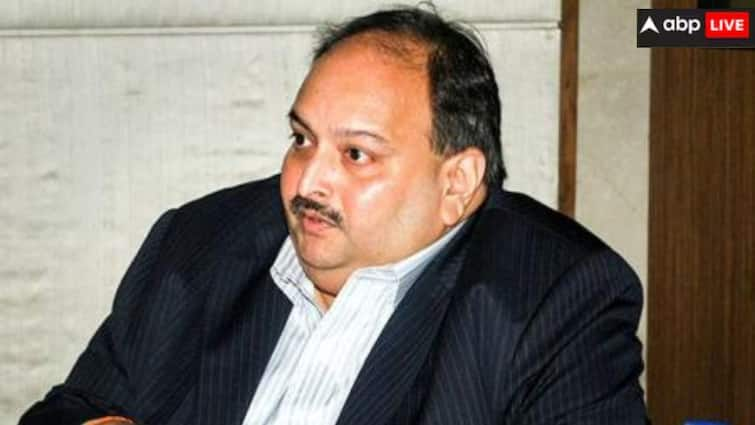- June 9, 2023
Explained | Why is the markets regulator asking for more disclosures from foreign portfolio investors?
The story so far: On May 31, markets regulator the Securities and Exchange Board of India (SEBI) floated a consultation paper that proposed additional disclosures from Foreign Portfolio Investors (FPIs). The objective is two-fold, firstly, to guard against possible circumvention of the requirement pertaining to Minimum Public Shareholding (MPS) and secondly, to prevent the misuse of the FPI route to circumvent the requirements listed in the Press Note 3 (updated April 2020). The regulator is seeking comments on the same until June 20.
What is the purpose of the proposed regulations?
As per the regulator, the objective is to “enhance trust in the Indian securities markets by mandating additional granular disclosures around ownership of, economic interest in, and control of objectively identified high-risk FPIs” that have either concentrated exposures to a single group and/or significant holdings by means of equity investments in India.
The development assumes particular significance considering what Financial Times reported on May 19— that the markets regulator had “drawn a blank” in its investigation into 13 offshore entities it considered suspicious. Further, as per observations in the report, the regulator’s own investigation was made tougher by a change in the legislative policy under the FPI Regulations, 2014. Based on the recommendation of a Working Group, in 2018, the provision dealing with ‘opaque’ structure and disclosing “every ultimate natural person at the end of the chain of every owner of economic interest in the FPI” was done away with.
The proposed regulations would thus try and identify tangible ownership and curtail incidences of multiple routes being used to acquire ownership in a company. This would help avert regulatory requirements, and more importantly, keep up with the minimum public shareholding norms. For perspective, it requires that public shareholding, or the shares held by the public for a listed entity, must be at least 25% to continue being listed.
The markets regulator acknowledges that on the surface, any enhanced disclosure requirements may appear to detract from ease-of-doing investments, adding, “However, there can be no sustained capital formation without transparency and trust.”
What issues has SEBI broadly discussed in the consultation paper?
The two broad issues that prompted floating of the proposed regulation in the consultation paper are: potential misuse of the FPI route for circumventing Press Note 3 stipulations and concentrated group investments by foreign portfolio investors endeavouring to bypass regulatory requirements (such as that for minimum public shareholding).
It has been observed that FPIs direct a substantial portion of their equity portfolio in the country to a single investee company or a company group. In some instances, the investments — as against the regular buying and selling in a market — have been observed to be static and maintained for a long time. SEBI observes, “Such concentrated investments raise the concern and possibility that promoters of such corporate groups, or other investors acting in concert, could be using the FPI route for circumventing regulatory requirements such as that of maintaining minimum public shareholding.” This would entail that the suggested free float, or the shares available in the open market for public trading without restrictions, , may not actually be correct. The practice may also invite price manipulation in such scrips.
The regulator’s other concern is about the potential circumvention of Press Note 3 stipulations. The central government amended the FDI policy vide Press Note 3 in April 2020 that required an entity sharing a land border with India, or where the beneficial owner is based out of any such country, to do so only via the government route.
It may happen the FPI entity is located in a country with which India does not share a land border, but the investor in the FPI (or the beneficial owner of the FPI) might be a citizen and/or residing in such a country. The proposed regulations in both cases would be able to trace such ownership and economic interest, courtesy the additional disclosures
What is the basis of the proposed disclosures?
Broadly, the proposed regulations would enhance transparency, fully identifying objective ownership of an entity in a holding – by examining control through direct and indirect exposure alongside a clear illustration of economic interests in the holding. The latter would form the basis of the look-down approach, to the level of natural persons, public retail funds or large listed corporates (that form part of the ownership structure). The assessment would be over and above the materiality threshold that is used to determine beneficial owners as per relevant laws.
All in all, the proposed legislation would try and examine your overall exposure, structured by determining direct and indirect exposures to establish your hold and overall holding in the company. This must not violate the provisions of Press Note 3 and the minimum public shareholding requirements.
SEBI has observed that, while under FPI regulations, details about the beneficial owner (the person on whose behalf a transaction is being conducted, also the one exercising ultimate effective control over a juridical entity) based on control or fund ownership have been made available, “it is often observed that no natural person is identified as the beneficial owner of FPIs based on economic interest, since each investor entity in the FPI is generally found to be below the threshold prescribed under PML rules.”
The proposed legislation categorises FPIs into low risk, moderate risk and high risk. Low risk would cover government and government-related entities such as central banks or sovereign wealth funds where the facts about ownership, economic and control interest can be deciphered from the government ownership. Moderate risk refers to pension funds or public retail funds with widespread and dispersed investors. They would be categorised only if designated depository participants can independently validate and confirm the status of such FPIs as pension funds and public retail funds with a wide and diverse investor base.
All other FPIs are categorised as high-risk.
What are the proposals?
High-risk FPIs holding more than 50% of their equity asset under management (AUM) in a single corporate group would have to make additional disclosures. However, new FPIs that have just begun investments would be allowed to breach the threshold criteria up to a period of six months, following which, they too would have to make the disclosures.
Further, existing ones in the process of winding down their investments in a single corporate group would be temporarily allowed to breach the criteria. This is provided they are able to wind down within six months.
On an ongoing basis, high-risk FPIs would have 10 days to scale down their concentration to move away from disclosure requirements.
Other than this, the paper also proposes that existing high-risk FPIs with an overall holding in the Indian equity market of over Rs 25,000 crore comply with the disclosure mandate within six months. Failing this, they would have to bring down their holding within the threshold. High-risk FPIs expecting to breach the threshold in future would only have three months to comply.
Further, FPIs whose India-oriented holdings are relatively small in comparison to their global portfolio may be classified as ‘moderate risk’ and not be subjected to additional disclosure requirements. These may include large index or exchange-traded funds and other funds tracing global indices of which India forms a part.
Failure to provide the above-mentioned granular disclosures wherever required would render the registration of the FPI invalid. Such FPIs would have to wind down operations within six months.






